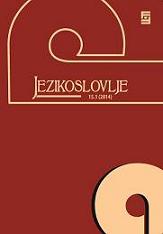Translating reference letters in the light of skopos theory
Translating reference letters in the light of skopos theory
Author(s): Vlasta KučišSubject(s): Language and Literature Studies
Published by: Filozofski fakultet, Sveučilište Josipa Jurja Strossmayera, Osijek
Keywords: translation; skopos theory; reference letters; communication; cultural know-how
Summary/Abstract: The aim of this article is to discuss two thematic focal points using an empirical comparative analysis of Slovene and German application documents: cultural know-how as a translational communication concept (reception and production competence) and intercultural translation adaptation in the light of the skopos theory, which makes the target text the focus of research. In this context, the translator’s task is to bridge the communicative gap between source and target cultures, whereby specific, culture-bound texts must be observed as a translation challenge. The cultural heterogeneity of international application documents is a particularly prominent feature. In this time of a free market economy, worldwide competition and a global labor market, the translator takes on not only the role of a constructive language mediator, but also that of a communication expert. Translation is defined as a communicative strategy interaction, which is determined by its purpose, the skopos (Vermeer 1983: 54). How the principle of sociocultural embedding of source and target texts is applied will be analyzed on the example of German and Slovene business reference letters, taking into consideration the historical and legal contexts. Notions like the international, i.e. Slovene-German, culture of job applications, as well as the closely related, culturally-specific principles of text composition are the priority of this article in the holistic translation study of application documents, based on an empirical research of 27 German and Slovene business reference letters in translation. These translations differ considerably from one another – not only in their composition, but also regarding their embeddedness in the legal system of the respective countries and the importance accorded them in the job application process. For a positive evaluation by a personnel manager in Germany, a reference letter must be rather detailed, while short reference letters are seen as rather negative. However, in Slovenia letters have to be as short and concise as possible.
Journal: Jezikoslovlje
- Issue Year: XV/2014
- Issue No: 1
- Page Range: 27-43
- Page Count: 17
- Language: English

